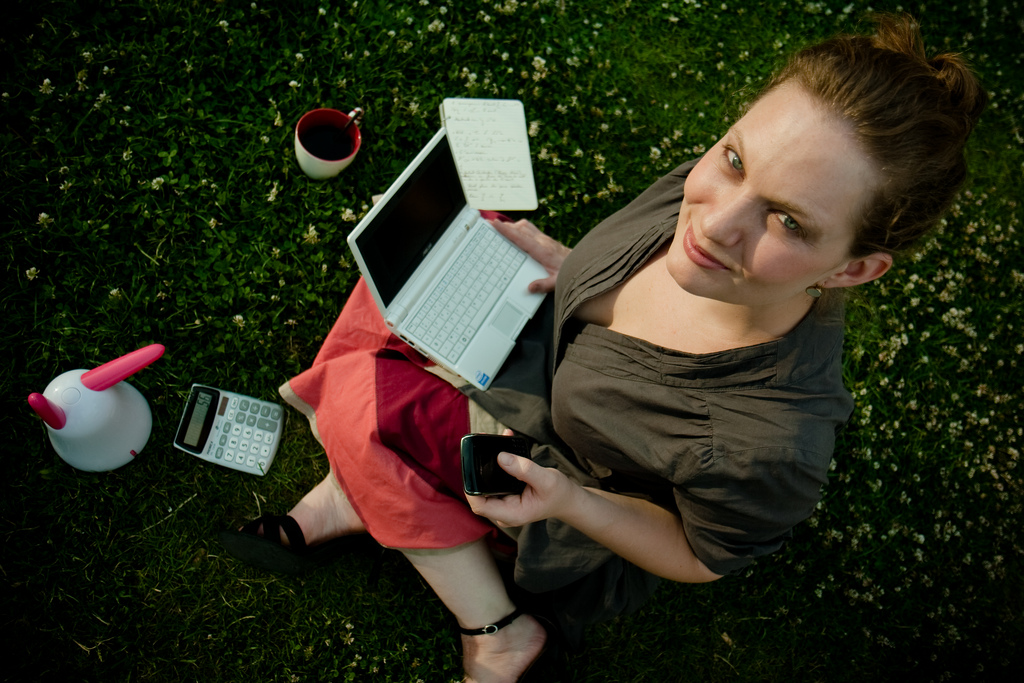
Image by Eole Wind via Creative Commons
By Donna Gardiner
On Sunday 8th March, people around the globe will come together to celebrate the economic, social and political achievements of women as part of International Women’s Day. The day also presents an opportunity to call for greater gender equality.
One of the great success stories for women’s equality has been the increase in women’s employment rates over the past forty years. Indeed, women’s employment levels are now higher than at any other time since records began.
However, despite this great progress, rates of female entrepreneurship have not matched this pace. A recent report by the Ambassador for Women in Enterprise, Lorely Burt MP, notes that only one in five businesses in the UK are majority-owned by women, and that women are significantly less likely than men to start their own business.
The report looked at the ways in which the government could help to address the barriers faced by female entrepreneurs and increase the opportunities available to them. It makes a number of recommendations, in particular:
- Making available support, including networking and finance, more accessible to women;
- Being more inclusive in communications with potential female entrepreneurs;
- Tackling unconscious basis in the presentation of services to women;
- Making greater, and better, use of the Great Business website, particularly the section targeted at women.
As well as promoting greater equality and choice for women, the report argues that improving support for female entrepreneurs could have significant economic benefits. For example, it cites research by the Women’s Business Council, which estimates that, if women were setting up new businesses at the same rate as men, there would be one million more female entrepreneurs. Indeed, raising the level of women’s employment to the same as men’s could lift GDP by as much as 10% by 2030.
Signs of progress
There are some promising signs of progress. Since 2008, the proportion of Small Medium Enterprises (SMEs) run mainly by women has increased from 14% to 19%.
Recently there has also been an increased focus on broadening young women’s aspirations and understanding of career options while they are still in education, partially as a result of recommendations put forward by the Women’s Business Council in 2013.
In 2014, a follow-up report assessed the progress that had been made against these recommendations. Successful initiatives included a pilot project to help female students develop entrepreneurial skills, and use of the Speakers for Schools scheme to enable successful female entrepreneurs to discuss their experiences with pupils and act as positive role models. We also wrote last year about the importance for girls of having female role models within science and technology, when considering career choices.
The government has also stepped up its support for existing and new female entrepreneurs, recently announcing a £1million challenge fund to help women grow their business online, the introduction of Start Up Loans, the Enterprise Allowance and local growth hubs, and the provision of £1.6 million to support women entrepreneurs in rural areas.
Mentoring can help
Karren Brady, a top female entrepreneur, known for her role on the BBC’s The Apprentice, and as vice-chair of West Ham Football Club, is passionate about female entrepreneurs and SMEs. She suggests that “fear and a lack of confidence can stand in the way of women” and recommends that budding entrepreneurs should find a mentor to help guide them.
She is not the only one to recognise the benefits of mentors for women entrepreneurs. The government recently announced additional funding for a series of ‘Meet a mentor’ events which are aimed solely at women.
The issue of female entrepreneurship has even found its way into popular women’s magazines such as Elle and Red, both of which have recently been promoting female entrepreneurship, through dedicated sections and discussions on business start ups and highlighting advice and guidance from strong female role models.
There are clearly many facets to tackling the low rates of female entrepreneurship. As well as ensuring that potential women entrepreneurs can access practical support and services, there is a need to tackle the underlying notion held by many that business is a ‘male activity’.
By doing so, women who want to run their own business will be better placed to obtain both the resources and the confidence required to “make it happen”.
Further reading
Whether you are interested in entrepreneurship or equalities, the Idox Information Service can help.
The Burt report: inclusive support for women in enterprise Department for Business, Innovation and Skills, 2015
Maximising women’s contribution to future economic growth: one year on Women’s Business Council, 2014
Realising the potential (under-representation of women in Scottish entrepreneurship), IN Holyrood, No 314 17 Mar 2014, pp73-74 (A49229)
Women and the economy: government action plan Government Equalities Office, 2013
Entrepreneurs: what can we learn from them? Inspiring female entrepreneurs Chartered Institute of Personnel and Development, 2013
Women in business: female entrepreneurship – creating growth and dispelling the myths Federation of Small Businesses, 2011
Share
Related Posts
A recent item on BBC Radio 4’s Today programme generated an unusually high number of responses from listeners. A man who had lost his job in the financial services sector at the age of 57 described his difficulty in trying ....
Tackling geographical inequalities is critical for ensuring that all parts of the country have the potential to prosper. When the UK was a member of the European Union, it was entitled to a share of funding from the EU’s structural ....
By Robert Kelk and Chris Drake A new start for an old challenge? The recent appointment of Marc Lemaître as the European Commission’s director general for research and innovation (R&I) has returned Europe’s R&I gap to the spotlight. Previously head ....
Instances of reported violence and misogyny against women and girls are rising. The high profile murders of Zara Aleena, Sarah Everard, Bibaa Henry, Nicole Smallman, Maria Rawlings, Sabina Nessa and Ashling Murphy have again raised questions about what can be ....
